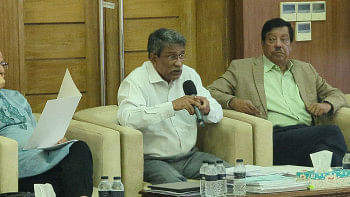The journey

If you travel on a bus, always take the window seat. You may want to peek outside, maybe later, in more peaceful hours. But for now, you let your head, full of worries, and a throbbing heart haggle with each other. Whether or not you have made the right decision to begin a voyage you are not sure how and where it will end.
If you travel on a bus, take an empty seat with a broken one next to you; you can travel without company, uninterrupted. If it's a window seat, you may look out, maybe later, when all your thoughts will go to sleep. But for now, you let your painted toenails rest next to your embroidered handbag. Closing your eyes, you listen to the loud Hindi songs blaring on the bus, wishing you were somewhere else before drifting off.
A sudden brake and the bus conductor's shouts jerk you up. You open your eyes, remembering only half of the dream. The other half swirls in the sultry air before flying outside. It is then that you look out.
The green countryside stretches out under a blazing sun like a tapestry. You pass coco-palms, betel-nuts, brick houses, a woman in a red printed sari with a pitcher on her waist, a few naked kids playing in the sand, peasants irrigating their fields, a hermit lost in thought under a banyan tree, a small white duck sitting on the back of a cow and a lone man in a bicycle. As you pass the small, thatched mud huts nestled among banana and mango groves in village after village, you wonder what kind of lives, what joys, what sorrows, what stories, what songs are hidden behind them. And you wonder if there are other daughters, once exiled and outcast, are going back home too?
Marzia Rahman is a flash fiction writer and translator. Author of two books, The Aftermath and Dot and Other Flashes, she has been published widely in both print and online journals.

 For all latest news, follow The Daily Star's Google News channel.
For all latest news, follow The Daily Star's Google News channel. 







Comments